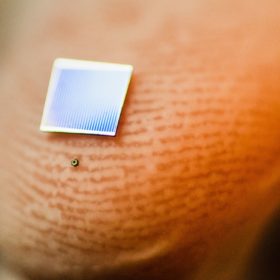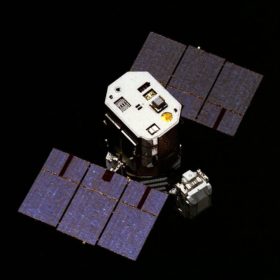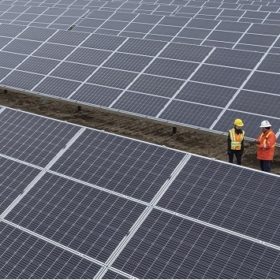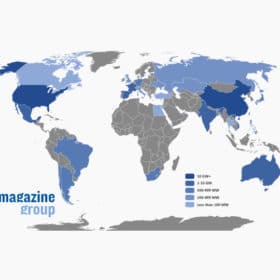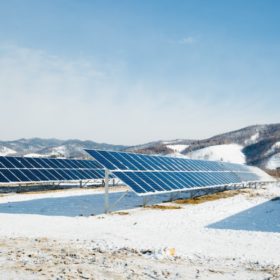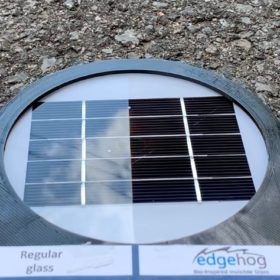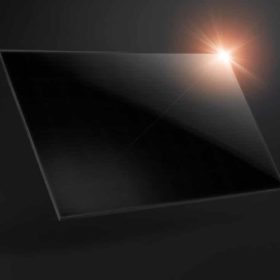Canadian Solar invests in British ‘merchant battery’ AI company
Oxford-based Habitat Energy uses machine learning algorithms, artificial intelligence (AI) and its own trading platform and software to maximize profits from utility scale storage facilities. A Canadian Solar statement about the arrangement, issued today, contained no financial details about the co-operation.
Micro III-V solar cell with 33.8% efficiency
Developed by a French-Canadian research group, the triple-junction cell is based on indium gallium phosphide (InGaP), indium gallium arsenide (InGaAs) and germanium (Ge) and has an active area of only 0.089 mm2. It can be used for applications in micro-concentrator photovoltaics (CPV).
5N Plus enters space solar cell business with acquisition of Azur Space
The purchase price should range between €73 million and €79 million. Azur Space produces triple-junction space solar cells with an average efficiency of up to 30% and is planning to develop ultra-thin solar cells with up to 35%.
Solar and wind together overhaul global hydro capacity
The latest set of clean energy statistics compiled by the International Renewable Energy Agency signal a changing of the guard when it comes to clean power, with legacy hydropower facilities overtaken by new intermittent renewables.
Using optical film to concentrate light in large-scale PV
The approach taken at a 13.7 MW Canadian solar park redirects and concentrates otherwise discarded light onto the PV cells.
Spanish solar renaissance lifts world to record year for large scale projects
A global ranking of large scale solar project capacities indicates prominent roles for a resurgent Spain, behind the usual top three of China, the U.S. and India, with Australia and the Netherlands also on the rise. There were disappointing returns, though, for the U.K., Italy and Canada.
‘Falling solar module costs are behind us’
Canadian Solar is pivoting towards energy storage and is preparing to IPO its manufacturing and Chinese solar project activity in China, under the CSI Solar operation, by July.
New parameters to improve prediction models for snow cover
Canadian scientists have developed a way to improve the short-term models used to forecast the impact of snow on PV arrays. The parameters include the warming effect of irradiance on the backs of panels, thermal capacity, and irradiance through snow.
Canadian start-up secures US$2.5 million to launch omnidirectional anti-reflective glass
Edgehog secured the funds from Sustainable Development Technology Canada (SDTC). The special glass is hydrophobic and is claimed to be able to reduce the accumulation of dust and residue, thus reducing the need for maintenance.
Silfab Solar launches 21.4%-efficient back contact residential panel
The new interdigitated back-contact module comes with power outputs ranging from 370 to 380 W and is the most powerful panel produced by the company to date.

